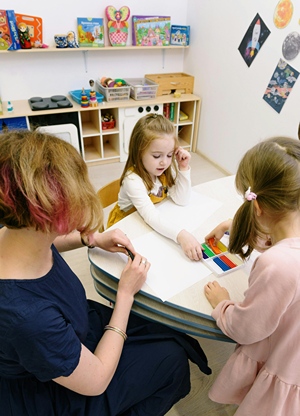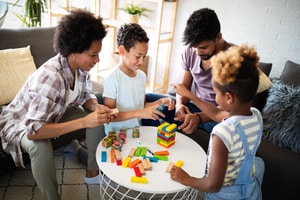The Role of Emotional Readiness in Early Childhood Education
Starting school is a major milestone for any young child, with their emotional readiness playing a critical role in how well they adjust to this new chapter in their life. When kids are emotionally prepared, they can handle the challenges of a school environment better, making those first few weeks much smoother.
How Educators Can Help with Emotional Readiness
Emotional readiness doesn’t happen on its own; it’s a skill that can be developed with the right guidance. That’s why certification programs like those provided by Unitech Training Academy are essential for educators looking to get certified for a career in early childhood development.
They equip educators with tools like interview simulations to help kids build emotional awareness, learn to express their feelings and develop the social skills needed for a successful start in school.
With these skills, teachers can create a classroom environment where kids feel safe and understood – where they’re encouraged to share their feelings, ask for help, and support each other through the ups and downs of the school day.
Why Emotional Readiness Matters More Than You Think
It’s easy to focus on academic skills before starting school – like knowing how to read a few words or count up to ten. But emotional readiness is just as critical, if not more so.
Emotional readiness focuses on a child’s ability to understand their own feelings, manage them in different situations, and interact positively with others. When kids feel secure in these skills, they’re generally far more open to new experiences and challenges in the classroom—something quality early learning centres are designed to foster through supportive, play-based environments.
For instance, a child who can recognize when they’re feeling frustrated or overwhelmed is more likely to seek help or take a break instead of giving in and giving up.
This self-awareness and ability to manage emotions can have a huge impact on their learning and social experiences, and that makes school a more positive place to be.
Recognizing Signs of Emotional Readiness in Young Learners
Parents often wonder if their child is ready for the emotional challenges of school. Here’s what to look for:
Managing Emotions
Can your child calm down when they’re upset? If they can recover from a setback, like a disagreement with a friend, that’s a good sign that they’ll do well in a classroom environment.
Independence
Is your child comfortable with simple tasks, like putting on their own shoes or picking up their toys? These small acts of independence aren’t just helpful at home. When a child exhibits independence, it’s a good sign that they’ll feel more confident in a school setting. Such characteristics go a long way in making sure your little one excels in their new surroundings.
Positive Social Interactions
Does your child enjoy playing with other kids and know how to share or take turns? Teaching this kind of behavior early on makes it easier for children to get along with others at school, and that translates to a more enjoyable experience in the classroom.

(Source: Pexels)
These indicators can help parents and educators assess how ready a child might be for the emotional aspects of school life.
How Parents Can Support Emotional Readiness at Home
Parents play a huge role in preparing their kids for this transition. The good news is that there are simple, everyday ways to support your child’s emotional growth:
Establish a Routine
Kids thrive when they know what to expect. Having a consistent daily routine around meals, bedtime, and playtime can make them feel secure and ready for the structured environment of school. It’s not so much that you’re creating a schedule. Rather, you’re instilling a sense of stability, which can have a tremendous effect on how children process school.
Talk About Feelings
Encouraging your child to express their emotions can have a big impact. If they’re feeling nervous about meeting new friends, let them know that it’s perfectly OK to feel that way. Open conversations about their feelings help kids learn that emotions are normal and manageable.
Encourage Social Play
Playdates and group activities are great opportunities for kids to practice sharing, taking turns, and communicating. These moments teach kids how to connect with others, which is essential once they’re in a classroom filled with new faces.
Final Thoughts
Emotional readiness has a big impact on how successful a child ultimately is in school. Interactions are more likely to be positive, challenges tend to be better coped with, and the overall learning experience will be richer.
You can get a head start by focusing on emotional readiness in your home. You will give your child the support needed to start their new school year right.




